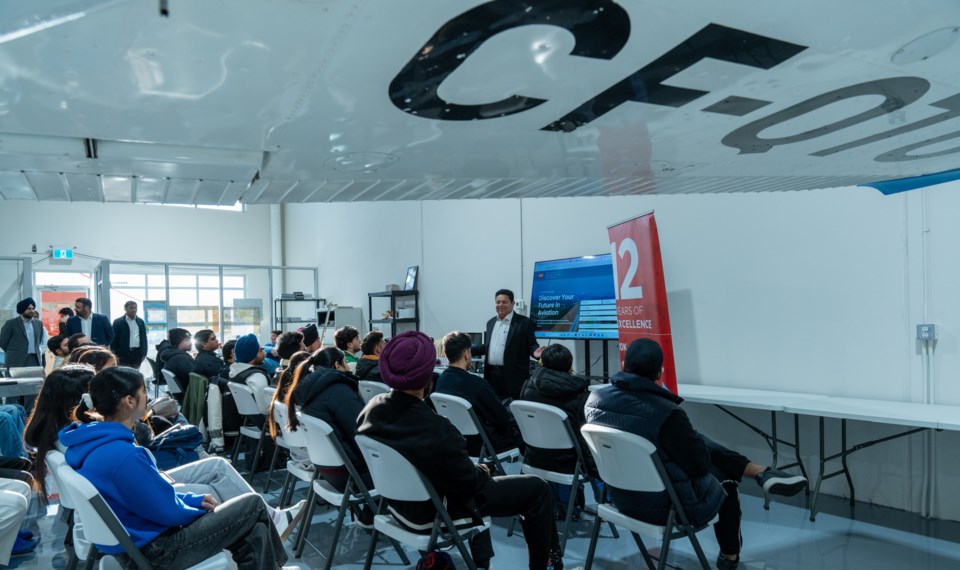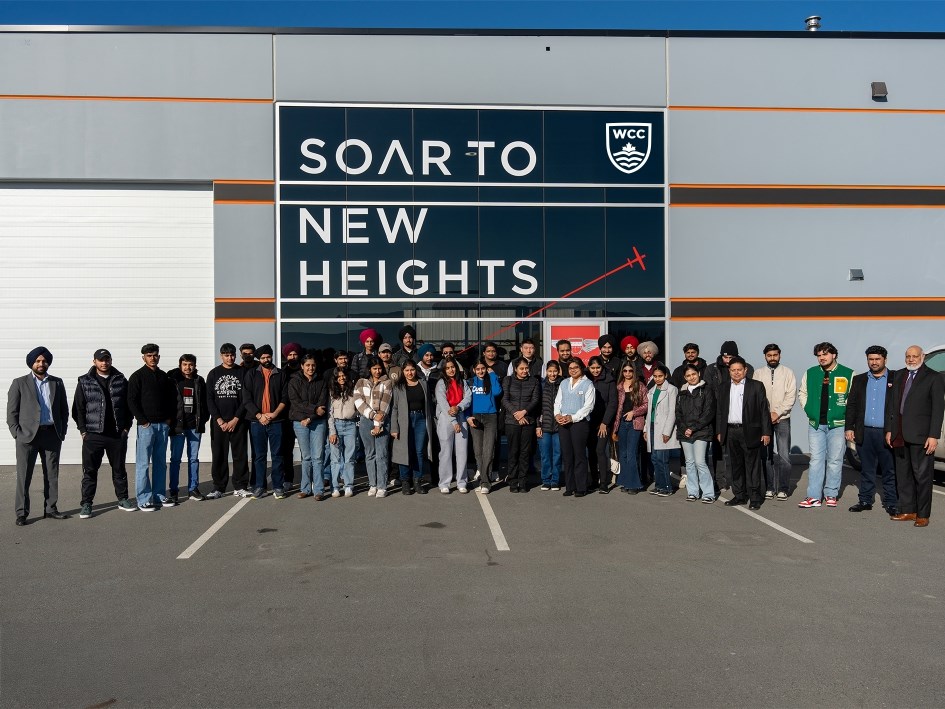Imagine a workday where within mere minutes, you have a bird’s eye view of the majesty of the Pacific Northwest.
The splendour of the Cascade and Rocky mountains greet you to the south and east; the great expanse of the Pacific Ocean meets you as you travel west; and the undeniable beauty of the fjords dotting B.C.’s central coast welcomes you as you fly north.
It’s a career where you can experience every culture on the globe inside of a day and perhaps most importantly, command a salary that sets you and your family up for life.
Western Community College’s (WCC) Aviation School offers precisely these perks and more, as this career-focused training program is designed to fast-track students into the aviation industry through hands-on learning at Abbotsford International Airport. By having access to an international airport, students get exposure to real world scenarios.
“The moment you're in the cockpit, everything changes,” explains WCC spokesperson Vricha Dave. “The roads look like tiny lines, cities like miniature models and for a moment, it’s just you, the sky and the sound of the engine – it’s peaceful, powerful and surreal all at once.”
WCC’s students train in real-world aviation environments tailored to those looking for direct entry into aviation careers with industry-relevant skills, practical flight hours and global employability.
Graduates go on to work as commercial pilots for regional carriers, charter services and cargo companies; flight instructors at aviation schools across Canada; airline cabin crew members for domestic and international airlines; or private pilots who own or operate smaller aircraft for business or personal use.

Students begin training on single-engine aircraft typically used in flight schools and general aviation, such as Cessna 172s, which are industry-standard for pilot training.
As graduates move into commercial aviation roles, they may transition to operating twin-engine aircraft, turboprops and eventually commercial jets – Boeing or Airbus models, for example – depending on the airline and career progression.
Cabin crew graduates go on to work aboard both narrow-body and wide-body aircraft for domestic and long-haul international routes.
WCC also has instructor rating programs, which allow students with a Commercial Pilot License (CPL) to move into teaching others within months.
“At Western Community College, our mission has always been to empower students with industry-ready skills and meaningful career opportunities,” says Gurpal Dhaliwal, president of Western Community College. “Our Aviation School is a natural extension of that vision, offering students not only a path to a high-demand profession, but also the chance to see the world from an entirely new perspective. We’re proud to be shaping the next generation of aviation professionals right here in British Columbia.”
Students start with ground school, learning key theoretical subjects such as aerodynamics, meteorology, air law, navigation and aircraft systems. This foundation is then brought to life through advanced flight simulators and in-air training at Abby Hanger in Abbotsford.
Meanwhile, cabin crew students learn practical skills including emergency response, in-flight service, safety procedures and customer communication.
“Fear of flying can be a very real concern and one we’re sensitive to, but our instructors create an environment that is supportive, encouraging and focused on safety and confidence-building,” Dave says.
The payoff?
A job that earns you up to $60 per hour in a field that will have roughly two million job openings over the next 20 years.
“WCC reports a 97% graduate employment rate across all programs,” Dave says. “Most students say that first flight is something they’ll never forget. It’s the moment it all becomes real – and for many, the moment they fall in love with flying.”
For more information on Western Community College’s aviation program, visit www.wcc.ca/programs/aviation.



